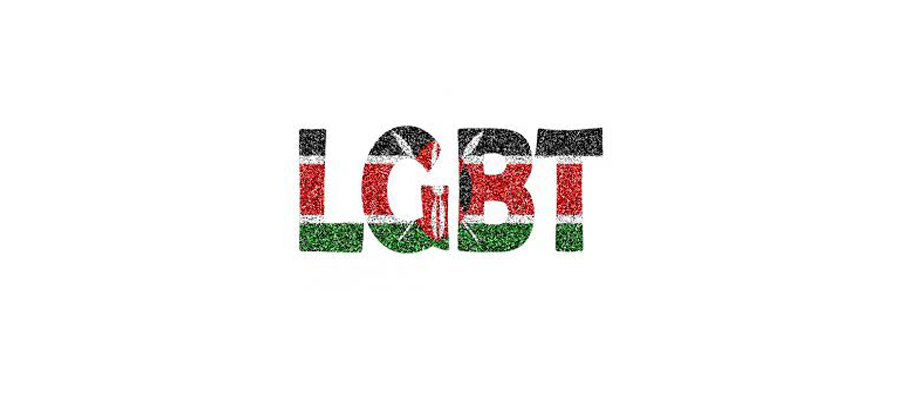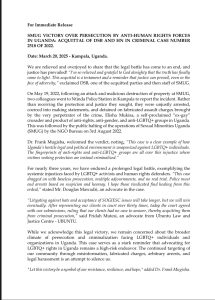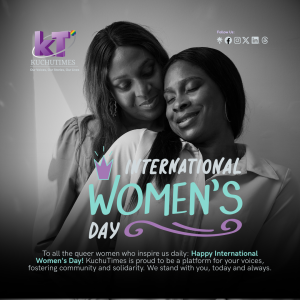With less than a month for the ruling to be heard on Kenya’s groundbreaking case to have homosexuality decriminalized, it cannot be denied that the movement is setting precedence in the struggle for the rights of LGBTIQ persons in the region. In a statement released by the National Gay and Lesbian Human Rights Commission, an independent human rights body that provides free legal aid services to LGBT persons that also doubles as the main complainant in this case, it was revealed that the case would be brought for ruling before the Kenyan High Court on 22nd February 2019. NGLHRC is challenging sections of the Kenyan Penal Code that make consensual same sex acts between adults punishable with up to 14 years’ imprisonment.
Kenya’s Penal Code, like most African nations, is an enforcement from the colonial era and like many and retains anti-buggery laws that make vague reference to “carnal knowledge against the order of nature” and “gross indecency.” It is these sections of the penal code that NGLHRC has long argued are used to justify violence against LGBT persons by criminalizing their identities and mere existence.
The case was previously heard by a three judge bench made up of Justices Roselyn Aburili, Chacha Mwita and John Mativo on February 22nd -23rd 2018, 1 st March and a mention on 25th October 2018, alongside a similar petition brought forward by the Gay and Lesbian Coalition of Kenya (GALCK) and Nyanza Rift Valley and Western Kenya (NYARWEK).
The ruling on this case, irrespective of the outcome, is definitely a landmark on the LGBTQ movement in the region; it has not only revitalized efforts to have many African constitutions challenged but also put the courts of law under question on their ultimate duty to protect the rights of all human beings.
Kenya has previously had a number of cases that have led up to this monumental moment that has left the region holding their breath in the hopes that the East African nation will be the first to have their constitution drop the inhumane colonial clauses.
Below are a few of the LGBTQ focused cases that have been heard in the Kenyan courts in the past decade
NGLHRC Challenges Forced Anal Examinations
A Court of Appeal in Mombasa, ruled on March 22, 2018, that conducting forced anal examinations on people who are accused of same-sex relations is unconstitutional. The ruling reversed a 2016 High Court decision that had upheld the Kenyan authorities' use of forced anal exams to attempt to provide evidence of homosexual conduct. The National Gay and Lesbian Human Rights Commission (NGLHRC), a nongovernmental organisation based in Nairobi, filed a constitutional challenge after police arrested two men in Kwale County in February 2015 on charges of homosexuality, and subjected them to forced anal exams, HIV tests, and Hepatitis B tests at Mombasa's Madaraka Hospital
The Ban on Screening the Movie Rafiki Lifted
2018 also saw a huge win for the LGBT community in Kenya after the high court lifted the ban of the Rafiki Film which had been blacklisted by KFCB and banned from showing in the cinemas. Rafiki which is an acclaimed film portraying a lesbian romance and that it the reason why the Kenya Film Classification Board banned it over its homosexual theme.
The film director moved to court in a bid to lift the ban so that she could screen it in Kenya being one of the requirements for submitting it for the Oscars Awards. The film which has received accolades and condemnation in the same measure tells the story of a romantic lesbian couple in the Kenyan set up which is not the norm. Justice Wilfrida Okwany lifted the ban temporarily for seven days for adults only so that Kahiu could qualify to submit to the Oscars. Although the lifting of the ban was temporary, this was a celebrated win for the LGBT movement as , for the first time in Kenyan history, an LGBT –focused movie was screened with consent and support from the courts of law.
Sham Gay Marriage
Although not a court case, a monumental story in the Kenyan LGBTQ movement is narrated by Wikipedia from February 2010, when a rumor spread in the coastal town of Mtwapa that two Kenyan men were going to marry in a local hotel. The rumor unleashed a "house-to-house witch hunt by anti-gay vigilantes, street attacks targeting gay men, the sacking of an AIDS-fighting medical center, and a widening wave of ultra-homophobic national media coverage". A local radio station, Kaya FM, picked up the story and started a series of programs on gays, which "included phone-in talk shows filled with homophobic discourse and incitements to violence". Baraka FM, Rahma FM, and ultimately national radio stations including Kiss and Classic FM also ran the story. Five days before the date of the non-existent wedding, "many of the muftis and imams discussed the impending wedding during Friday prayers and asked the community to be vigilant against homosexuals. They told their congregants to demonstrate and to flush out homosexuals from the midst of Mtwapa and to ensure that no gay wedding took place".
The day before the non-existent wedding, a press conference condemning the wedding was held by Sheikh Ali Hussein, regional coordinator of the Council of Imams and Preachers of Kenya, together with Bishop Lawrence Chai, regional representative of the National Council of Churches of Kenya. They warned that "God is about to punish the fastest-growing town in the Coast region. Come night, come day, we shall not allow that marriage to be conducted in this town tomorrow. We shall stand firm to flush out gays who throng this town every weekend from all corners of this country".
They also warned the owner of a building in the town, who was allegedly renting rooms only to homosexuals, to evict them within seven days or face their wrath. The two denounced the Mtwapa clinic run by the Kenya Medical Research Institute, which has an AIDS program for counseling and treating men who have sex with men.
Below, we take a look at the sections in Kenya’s penal Code that criminalise homosexuality. In essence, these clauses, make any adult, who has consensual sex deemed to be against the order of nature, with another adult a criminal before the law. While the penal code encompasses even heterosexual relationships as seen in Section 162 (a) below, these clauses are never applied outside of LGBTQ relations even though it is no secret that hetero relations indulge in anal sex, or sexual acts that may be referred to as being against the order of nature.
Section 162: Unnatural offenses.
Any person who –
(a) has carnal knowledge of any person against the order of nature; or
(c) permits a male person to have carnal knowledge of him or her against the order of nature, is guilty of a felony and is liable to imprisonment for fourteen years:
Provided that, in the case of an offence under paragraph (a), the offender shall be liable to imprisonment for twenty-one years if –
(i) the offence was committed without the consent of the person who was carnally known; or
(ii) the offence was committed with that person's consent but the consent was obtained by force or by means of threats or intimidation of some kind, or by fear of bodily harm, or by means of false representations as to the nature of the act.
- Section 163: Attempt to commit unnatural offenses.
Any person who attempts to commit any of the offences specified in section 162 is guilty of a felony and is liable to imprisonment for seven years.
- Section 165: Indecent practices between males.
Any male person who, whether in public or private, commits any act of gross indecency with another male person, or procures another male person to commit any act of gross indecency with him, or attempts to procure the commission of any such act by any male person with himself or with another male person, whether in public or private, is guilty of a felony and is liable to imprisonment for five years.




